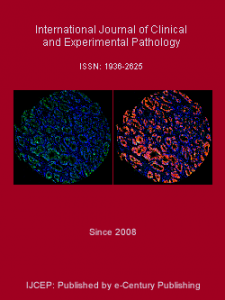 A pathology journal has retracted a 2015 paper from researchers in China after concluding the authors had falsified and copied some of the data and text.
A pathology journal has retracted a 2015 paper from researchers in China after concluding the authors had falsified and copied some of the data and text.
According to the notice, a “knowledgeable informant” told the journal about the overlap and “fraudulent” aspects of the paper, which the editors were able to confirm. The journal retracted the paper last month.
Here’s the retraction notice for “Genistein attenuates glucocorticoid-induced bone deleterious effects through regulation Eph/ephrin expression in aged mice:”
A large portion of the data and the text in this article was either copied from another source or fraudulent as disclosed by a knowledgeable informant and subsequently confirmed by the Editorial Office. Therefore, the entire article has been retracted in accordance with this journal’s policy and Editorial decision.
The 2015 paper, published by the International Journal Of Clinical And Experimental Pathology (IJCEP), has been cited three times, once by the notice itself, according to Clarivate Analytics’ Web of Science, formerly part of Thomson Reuters.
The notice does not specify what aspects of the paper were fraudulent or from what source the authors copied data and text.
For more information on the “knowledgeable informant” and the fraudulent data, we contacted the editors-in-chief Qihui “Jim” Zhai and Xiuwu Bian, the associate editor-in-chief, Dennis W. Dickson, and the publisher e-Century Publishing (formerly part of Jeffrey Beall’s now-defunct list of possible predatory publishers).
We also reached out to the corresponding author Yuan Cheng, from The Second Affiliated Hospital of Anhui Medical University, in China. We’ll update the post if we hear back.
Like Retraction Watch? Consider making a tax-deductible contribution to support our growth. You can also follow us on Twitter, like us on Facebook, add us to your RSS reader, sign up on our homepage for an email every time there’s a new post, or subscribe to our new daily digest. Click here to review our Comments Policy. For a sneak peek at what we’re working on, click here.
e-century publishing: a predator publisher. Why does Retraction Watch spend time om them?
Because they retracted.